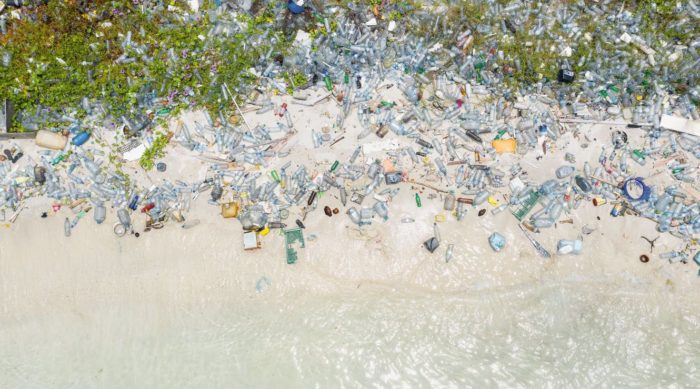‘Act now’ to reduce global plastic pollution, say experts

More than 1.3 billion tonnes of plastic will be dumped on land and in the oceans over the period from 2016 to 2040 unless the world acts, say a team of global experts.
They modelled the stocks and flows of plastic waste around the world - and identified waste systems unable to cope.
Around 95 percent of aggregate plastic packaging is used just once before it becomes waste.
The researchers included Dr Costas Velis and his team in the School of Civil Engineering. They provided analysis of the role effective waste management plays in reducing pollution.
That analysis showed that the biggest source of plastic pollution was uncollected solid municipal waste, a lot of it from households.
The study was part of the Breaking the Plastic Wave project, funded by the US philanthropic organisation, The Pew Charitable Trusts. The project is trying to identify ways of eliminating or significantly reducing plastic pollution in the oceans.
The findings have been published in the journal Science – and in a separate report, Breaking the Plastic Wave.
Although the quantities of plastic pollution are enormous, the experts say action by governments and industry can bring about significant reductions in the amount of plastic pollution using existing technology and knowhow.
You can read more about the Breaking the Plastic Wave project – and Leeds’s contribution to the analysis – in our Research Spotlight.
The four institutions involved in the research were: the University of Leeds, The Pew Charitable Trusts, SYSTEMIQ and the University of Oxford. A wider panel of experts was also involved.
Further information:
Top image: Adobe stock
For further information, please contact David Lewis in the University of Leeds press office: d.lewis@leeds.ac.uk
